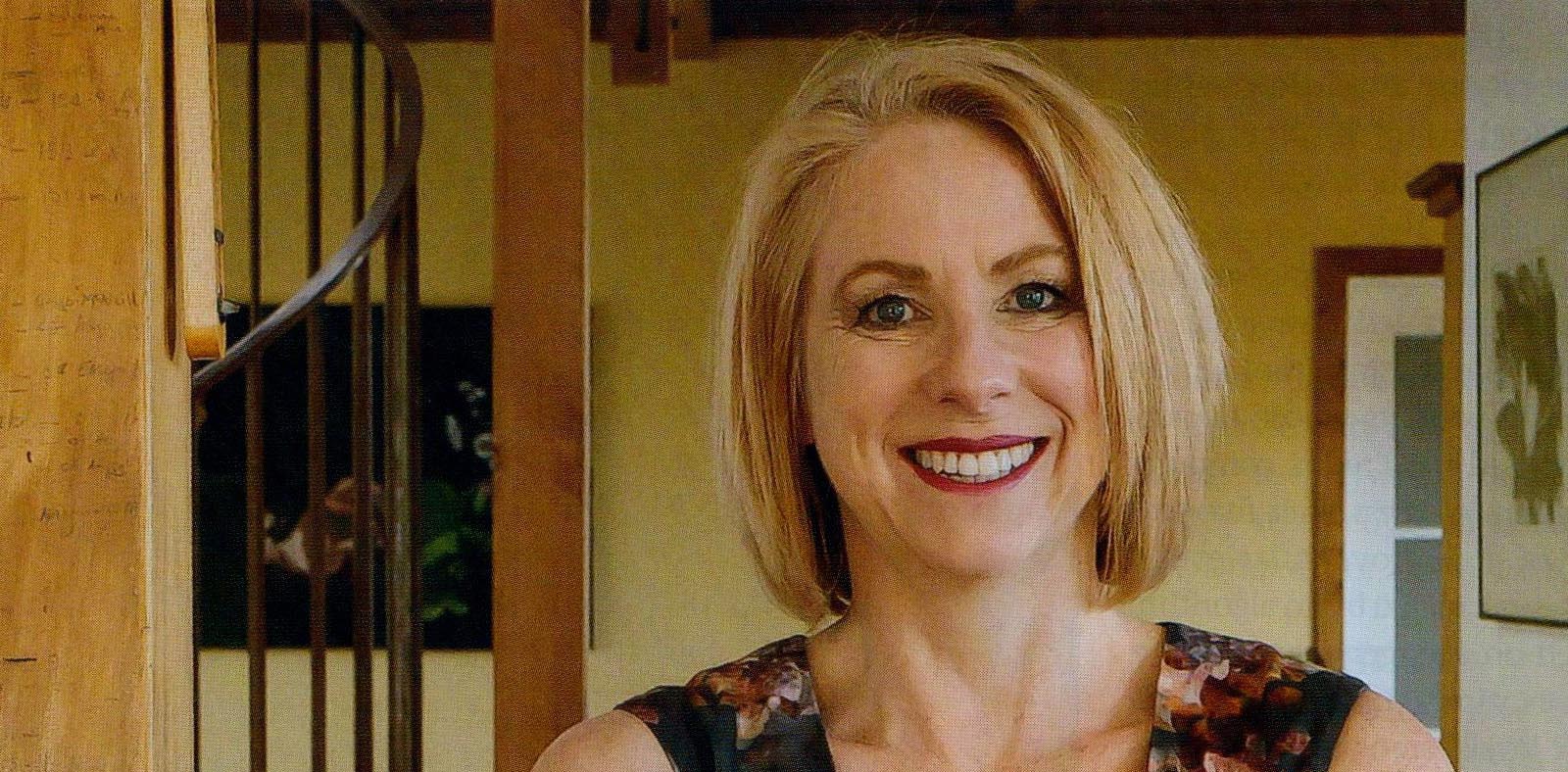
We all talk a good game about how to eat, what to eat, and the importance of preparing our own food from quality ingredients. The truth is that everyone faces the same dilemmas from time to time. Whether it's travel, working late, business lunches, social outings, or simply not being interested in cooking, there are many reasons that eating that home cooked meal may not always be possible.
I've decided to pose a series of questions to our members on a weekly basis on what gets them through these situations. You might be surprised at some of the answers and others might be exactly what you expected — either way, I'm hopeful that this will help you navigate your way through the myriad of awkward, inconvenient, or simply lazy situations you find yourself in.
Julianne Taylor from Auckland, New Zealand
CA: Do you put much thought into where you eat out? Or do you simply go anywhere and try to make do with what's on the menu?
JT: I always check the meal options on the restaurant website, to make sure there are choices for me, and if they have gluten-free meals.
CA: Most memorable restaurant meal in (or near) Auckland?
JT: Our favourite local restaurant is Siostra in Grey Lynn. The food is always good, the atmosphere comfortable and friendly, and the staff go out of their way to provide gluten-free snacks and meals. The lamb ribs are to die for. For me it's the most memorable meal because we have had many happy times and yummy food and wine shared with friends here.
We have a lot of excellent restaurants and cafes in our city.

CA: Most memorable restaurant meal outside of Auckland?
JT: I would have to say one of the most memorable meals was at a restaurant in Russia in the city of Novokuznetsk, which is our children's birth city. We visited it in 2016 to reconnect with our children's birth family. The restaurant was in the the City Mall, an upmarket mall in the center of the city. We had all manner of dishes, soups like borsch, mains with vegetable, pork and seafood. All were delicious and I was easily able to get gluten-free meals. The prices were amazingly cheap for the amount and quality of food, but for a Russian they would be really expensive.
Find More Member Recommended Restaurants Near You
CA: For people with special diets, how do you suggest they talk with restaurant staff in order to get what they need?
JT: It really depends on how restrictive your diet is, and if you can tolerate a little contamination or none at all. Personally I just ask for a gluten-free meal, and it is fairly easy to get one in our city. Many restaurants will mark their gluten-free options.
For my post grad research in 2015 I carried out qualitative research on people who were following an auto-immune paleo diet and one of the questions I asked was "How do you manage eating out?" They had a number of strategies: some rang ahead and asked about accommodating their strict meal needs, they said this worked because the restaurant didn't have to deal with their specific requests without warning. Others said they would go to the restaurant and check the menu and ask specific questions about food like "what spices do you marinate with or add to food?" "Do you add any of these specific ingredients to the dish?" and one said they started with "I tip really well — and I have specific foods I can't eat — what meal can I eat or what meal can be adjusted for my needs?"
CA: Do you prepare an emergency meal when you travel? If so, what do you include?
JT: I don't usually worry about preparing meals to take when I travel as I can usually find food that works, for example nearly every cafe will do eggs and grilled tomatoes, If I'm going somewhere where I think there may be no food that I can eat I'll probably take some protein powder or additive free jerky, or tins of salmon and tuna, and some fruit and nuts.
CA: Your favorite quick meal to prepare at home?
JT: I eat meat, poultry, eggs or seafood plus veg at most meals. I tend to eat a fairly high protein diet as I am currently doing a powerlifting programme, and I find my recovery and strength gains are best eating about 1.3g protein per lb lean mass per day. I don't do well on a high fat diet, as I tend to gain weight, so I eat moderate to low carbs and the same for fat. I've found this works best now that I am post menopause too. I gain weight so much more easily now, and this diet is currently working for me.
I always make quick meals, and always cook from scratch because of my auto-immune issues.
For breakfast I currently make a 'porridge' with ground flax seed, coconut flour, oat bran (I tolerate this), and then add various resistant starches; green banana powder, inulin, acacia, and then egg white protein and collagen. Added to that 1/2 cup of berries to sweeten it. It's my gut health breakfast.
My quick lunches are leftovers plus a salad, with some fermented vegetables like kimchee. Takes all of 5 minutes to heat up some dinner from the night before and add a salad.
If it's a fresh meal cooked from scratch, one of my favourite dinners would be pan fried fish, sweet potato mash and a large mixed salad with olive oil and balsamic dressing.
I have lots of favourite meals though, and if a see a paleo compatible recipe I'll give it a go, if it's delicious it's a keeper. Any meal that takes 30 minutes to prepare and is delicious is rotated.
CA: Do you consume alcohol? Explain why you think it is or isn't a good idea.
JT: I like a small glass of wine most nights, literally small — as in about 100 mls. I'm probably better off not drinking at all, due to having auto-immune diseases, but it is a small pleasure to have a glass of good quality wine. If I drink early in the evening and then stop by 8.00 pm it has little to no affect on my sleep.
CA: In terms of food, what is your guilty pleasure?
JT: Something creamy and sweet, like ice cream or a decadent desert. I might have one occasionally, usually when eating out, where I share one.
 Julianne Taylor has been fascinated by nutrition and the difference it can make to people’s health since the day she changed from eating a standard healthy diet to the Zone diet in 1996, adding Paleo food choices in 2009. Not only did it change her health, it changed her career direction. She had been working in health related areas for many years, (first as a registered nurse and then as a designer of equipment for people with disabilities, she has a Diploma in Design, and post grad Diploma in Design for disability) and was looking for a change in direction. Her interest in nutrition was sparked, and she became a Certified Zone diet instructor. She has since studied nutrition at Massey University (to degree level). In 2009 she started working with CrossFit clients at CrossFit Auckland where she was introduced to Paleo eating. After reading “The Paleo Diet” and numerous articles on Loren Cordain’s website she needed no more convincing. She had to try out this way of eating. This was indeed the missing link for her. The Zone diet reduced most of her health issues; PMS, menstrual pain, reactive hypoglycemia and occasionally swelling knees, she also lost weight and gained more energy. However, these issues were not completely resolved and would come and go. Eating Paleo food choices was the missing link , all health problems went and they stayed away!
Julianne Taylor has been fascinated by nutrition and the difference it can make to people’s health since the day she changed from eating a standard healthy diet to the Zone diet in 1996, adding Paleo food choices in 2009. Not only did it change her health, it changed her career direction. She had been working in health related areas for many years, (first as a registered nurse and then as a designer of equipment for people with disabilities, she has a Diploma in Design, and post grad Diploma in Design for disability) and was looking for a change in direction. Her interest in nutrition was sparked, and she became a Certified Zone diet instructor. She has since studied nutrition at Massey University (to degree level). In 2009 she started working with CrossFit clients at CrossFit Auckland where she was introduced to Paleo eating. After reading “The Paleo Diet” and numerous articles on Loren Cordain’s website she needed no more convincing. She had to try out this way of eating. This was indeed the missing link for her. The Zone diet reduced most of her health issues; PMS, menstrual pain, reactive hypoglycemia and occasionally swelling knees, she also lost weight and gained more energy. However, these issues were not completely resolved and would come and go. Eating Paleo food choices was the missing link , all health problems went and they stayed away!
Read More Q&A's from the "What & Where They Eat" Series


